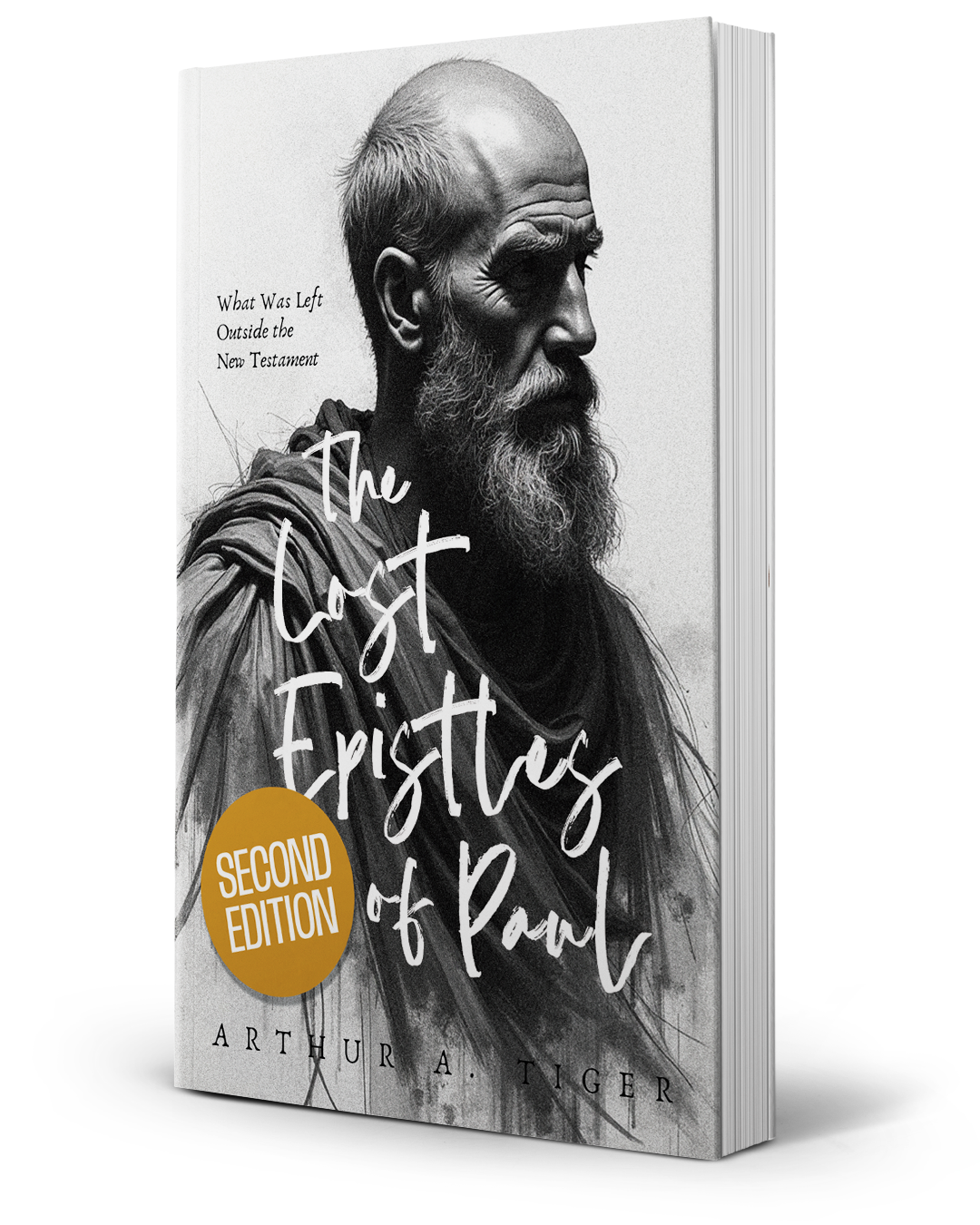
The Lost Epistles of Paul
What Was Left Outside the New Testament
English | 243 pages | ISBN 979-8 316 231 614
What would the Apostle Paul have written if his complete correspondence had survived? What theological dimensions remained unexpressed in his letters? How might he have addressed audiences he never wrote to?
“The Lost Epistles of Paul” presents a bold exploration of the “unknown Paul” — reconstructing lost letters mentioned in the New Testament, uncovering theological reflections implicit in his thought, and imagining epistles the apostle might have written to various recipients.
The book is structured in three parts:
- Lost Letters: Reconstruction of letters explicitly mentioned in Paul’s canonical epistles, such as the letter before 1 Corinthians, the “letter of tears, ” and the epistle to the Laodiceans.
- Unspoken Thoughts: Exploration of theological dimensions that remain implicit rather than fully articulated in Paul’s surviving writings.
- Impossible Letters: Creation of hypothetical epistles Paul might have written to the Jerusalem church, Roman authorities, women leaders, and churches of future generations.
We encounter a more complex and multifaceted Paul — one whose theological vision extends beyond what survived in his canonical letters. The book illuminates not only the apostle’s world but offers fresh insights for the contemporary church navigating its own theological and practical challenges.
The book is available on Amazon. I would truly appreciate it if you could leave an honest, thoughtful review and share your impressions.
Buy on The Great British Bookshop.
A Word of Gratitude
Thank you for choosing these theological explorations. I hope these reflections on Christian faith will contribute to your spiritual journey. I welcome your thoughts and questions as you engage with these ideas. May this work serve you well in your walk of faith. If you find value in these theological reflections, a thoughtful review on Amazon would help fellow believers discover this work.
★ ★ ★ ★ ☆ 4.6 avg rating
Arthur Tiger offers a daring and often moving reconstruction of Paul’s possible lost correspondence. However, the line between historical plausibility and creative theology often blurs. I would have appreciated more consistent footnotes or disclaimers distinguishing speculative material from exegetical inference. A clearer methodology section up front would greatly enhance the academic value of the book without dulling its creative edge. Mark Tailor
This book pushes boundaries in all the right ways. Arthur’s hypothetical epistles challenge readers to think about what Paul didn’t say, but maybe would have. The “Impossible Letters” section is particularly intriguing especially the one to women leaders. Not all ideas resonated with me, but the intellectual exercise was invaluable. Johnny Clark
OMG 😍 this book was sooo deep but like not in a boring way lol. The whole “letters Paul might have written” blew my mind 🤯. I never even thought abt how much didn’t make it into the Bible! 👀 Tbh the “letter to future generations” made me cry 💌😭. Would totally rec to my church girls group 🥹💖 #PaulFanNow Genevieve Cobb
Great Ideas, Uneven Writing Style. The content is excellent, especially for readers interested in theology, but the prose varies from vivid and poetic to occasionally dense and dry. The “Unspoken Thoughts” section could benefit from tighter editing and more narrative coherence. Tiger has remarkable insights, he just needs a smoother storytelling rhythm to fully engage non academic readers. Luke Woodward
The book is an absolute treasure for those of us immersed in the academic study of Paul. It manages to be scholarly without alienating the curious lay reader. The “Impossible Letters” section is where Tiger shines speculative, yes, but always grounded in historical plausibility. Wallace Cummings
The writer has given us a Paul who feels less distant and more human. The letter to women leaders (hypothetical though it is) was both courageous and deeply moving. I will be using this book as a dialogue bridge in interfaith contexts where Paul is often a barrier. Albert Gill
While Tiger is clearly well read in ancient history, some social and political nuances of Roman governance in his letter to the authorities felt anachronistic. Still, the concept of Paul addressing civic leaders is fascinating and needed more in today’s dialogue between church and state. Jacqueline Matthews
A fresh, respectful look at Paul that doesn’t undermine Scripture, but asks: “What if?” It challenged my thinking without threatening my faith. I especially appreciated the subtle way Tiger addressed tensions between Paul’s theology and the contemporary church. Penelope Bax

